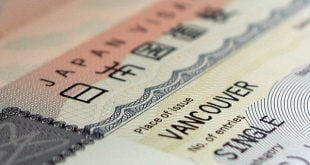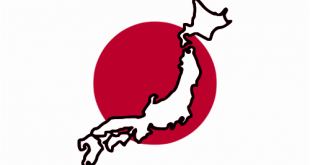Most Japanese people are descendants of migrants who came from the Asian mainland. China influences most of the culture and traditions of Japan. Additionally, culture and tradition in Japan has also been influenced by the western world over the last century.
Table of Contents
Japan culture facts
Japan has a homogeneous society that includes other nationalities other than Japanese. The society is made up of approximately 1% of Koreans and Chinese. Additionally, 5-10% of the population is from the Philippines and Brazil.
Family plays an important role in society. In fact, respecting the elderly is a matter of great importance for the Japanese people. Additionally, Japan follows a stricter social hierarchy compared to the western society.
As we’ve mentioned in our previous article, Japanese culture and tradition places importance on education and academic accomplishments. Additionally, the importance of hard work and perseverance is instilled in Japanese individuals at a very young age and persists as they grow older. Another staple of Japanese culture and tradition is politeness and preserving a respectable public image.
Japanese people often conduct themselves in a more formal and cordial manner than other societies. They also keep personal matters private and avoid awkward situations with others. Additionally, Japanese people rarely ever refuse directly. Likewise, yes does not always mean agreement. Not only that, but Japanese people also do not ask direct questions or make direct orders.
Tradition and culture in Japan
The younger generations are more influenced by western culture while the older generations hold on to Japanese culture and tradition. Below are some important things that all international students must know:
- The Japanese people bow forwards 45 degrees as a form of traditional greeting. However, they are aware that the western greeting is a handshake.
- It is inappropriate for you to introduce yourself among people. It is best to wait for someone else to introduce you.
- As a form of respect, Japanese people add the suffix -san to a given name. Additionally, they’ll also use the word “Sama” as another form of respect and admiration.
- You should never enter the house with your shoes on. In a Japanese household, you need to take your shoes off. You must wear house slippers, normally placed in the doorway.
- Nonverbal communication is very important in Japanese society. For that reason, you must use the facial expressions, intonation and body language that is appropriate for every context.
- The eldest in a group of people is always the center of respect and attention. Therefore, you should always serve them first as a sign of respect.
- You should never tip anyone for any service. It is offensive in Japanese culture.
- Japanese people normally wear surgical masks in public places to prevent the spread of infections during flu and hay fever seasons.
To learn the basics of the Japanese language or improve your proficiency, read our guide on learning Japanese in Japan.
Japanese traditions and festivals
Festivals are a big part of the culture and tradition in Japan. Matsuri – festival in Japanese – is closely related to the Japan’s religious belief and agrarian past. And looking at the Japanese calendar, almost every month, there is a major cultural event to celebrate.
Moreover, each of the 47 Japanese prefectures has specific festivals that take place usually in the summer. These are also part of the way Japanese people celebrate seasonal changes and show their appreciation for new beginnings.
Japanese people take part in these festivals by wearing yukata and sandals. Festivals in Japan also feature big processions along with local festival markets. Among the most famous festivals are the:
- Awa Odori Festival in Tokushima which takes place during the Obon Week in August.
- Gion Festival in Kyoto, the largest parade in Japan since the 800’s
- Nebuta Festival in Aomori, in Northern Japan and dedicated to ancient warriors.
- Tanabata Festival in Sendai, during which 3,000 traditional Sasakazari colorful decorations are displayed throughout the city and the surrounding shopping streets.
These festivals are the best way to experience the authentic Japanese culture and tradition to the fullest. So, don’t miss out on matsuri celebrations if you get the chance during your stay in Japan!
International students in Japan are allowed to work full-time in summer. And festival seasons provide a great way to enjoy the vibrant culture while earning some money along the way! Learn how to do so in our guide: Study and work in Japan.
Working hours and weekends in Japan

- Official working hours for banks and government jobs are from 9 a.m to 5 p.m.
- The weekend is on Saturday and Sunday.
- Post offices operate from Monday to Friday from 8 a.m to 8 p.m and from 10 a.m to 4 p.m on Saturdays. The post office is closed on Sundays.
- Public schools are active until the evenings in some areas. Sundays are the only day off.
- Universities and colleges normally have both Saturdays and Sundays off.




 Aljawaz Your guide to study abroad
Aljawaz Your guide to study abroad













